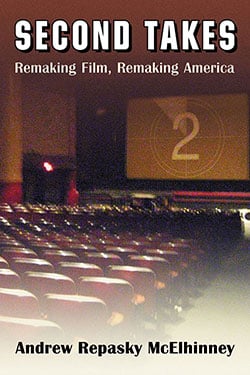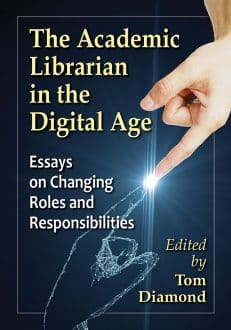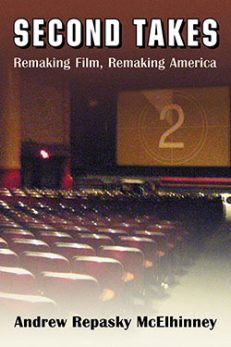Second Takes
Remaking Film, Remaking America
$29.95
In stock
About the Book
Second Takes presents the history of English language cinema by focusing on cinematic remakes and on how cinema has been replaced by new forms of “media.” Remakes, with their innate plurality, offer the most substance for concentrated cultural analysis of how movies reflect and shape American culture.
Analyzing the archetypes that recur in this culture reveals how movies are an increasingly dangerous surrogate for the actual.
Close readings are presented of such works as popular favorites as Cronenberg’s Crash, Disney’s The Parent Trap, Ferrara’s Bad Lieutenant, Hitchcock’s Psycho, Kubrick’s A Clockwork Orange, Lynch’s Twin Peaks (the film) and Welles’ The Magnificent Ambersons, while unearthing pictures ripe for rediscovery such as One More Tomorrow, Strange Illusion and Andy Warhol’s Vinyl.
Instructors considering this book for use in a course may request an examination copy here.
About the Author(s)
Bibliographic Details
Andrew Repasky McElhinney
Format: softcover (6 x 9)
Pages: 244
Bibliographic Info: 47 photos, notes, bibliography, index
Copyright Date: 2013
pISBN: 978-0-7864-7761-6
eISBN: 978-1-4766-1340-6
Imprint: McFarland
Table of Contents
Table of Contents
Acknowledgments ix
Introduction: Remakes, from Shakespeare to the PostLiterate Problem 1
1. Edible Wrecks: Charting Technology Remaking the Body in The Black Cat (1934), Peeping Tom (1960) and Crash (1996) 19
2. The Birth of NeoConservatism through Violence: Gangsters Remaking Capital in The Public Enemy (1931), Point Blank (1967) and Bad Lieutenant (1992) 42
3. “In the grimace of intense desire”: Remaking Women with Imitation of Life (1934 and 1959) 82
4. The Bequests of Shadows: Remaking the Father in The Magnificent Ambersons (1942), One More Tomorrow (filmed 1942; released 1946) and Strange Illusion (1945) 102
5. “It’s all very realistic!” Remaking Image with Vinyl (1965) and A Clockwork Orange (1971) 125
6. Self-Deliverance: Children Unmaking the Family in Psycho (1960 and 1998) and The Parent Trap (1961 and 1998) 136
7. Chapter Six, Part 2! Remaking Hollywood with Forced Entry (1973 and 1981), Despair (1978) and Raiders of the Lost Ark: The Adaptation (1989) 159
8. I Know Who Killed Me: Remaking the Artist in The Immortal Story (1968) and Twin Peaks: Fire Walk with Me (1992) 182
Conclusion: For a Remaking 198
Chapter Notes 205
Bibliography 211
Index 223






